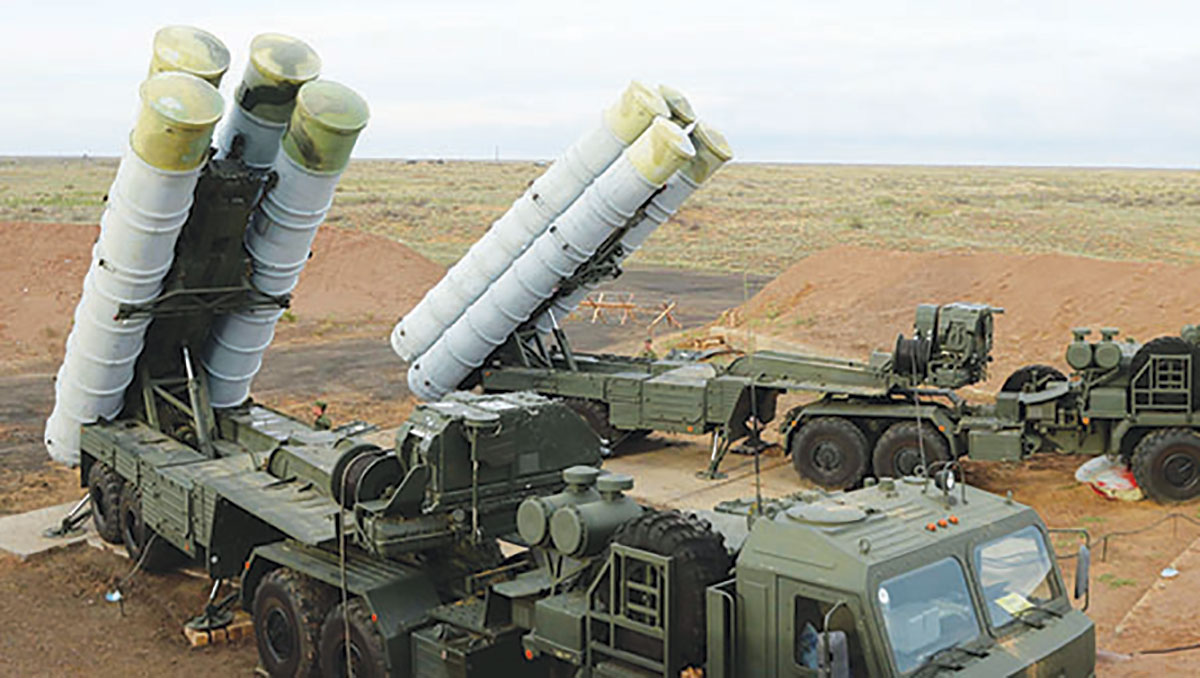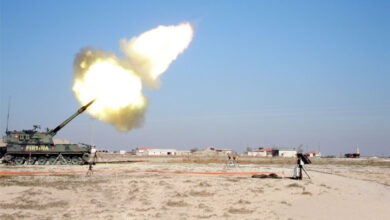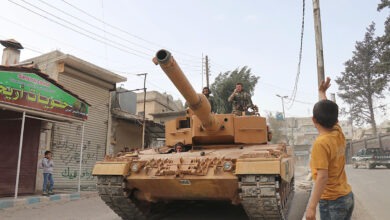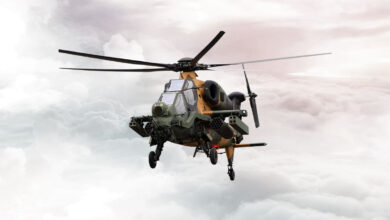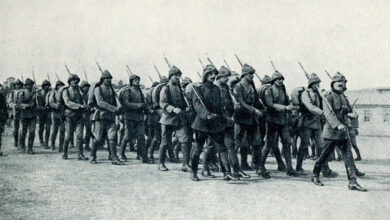Four Aspects of Turkey’s S-400 Adventure
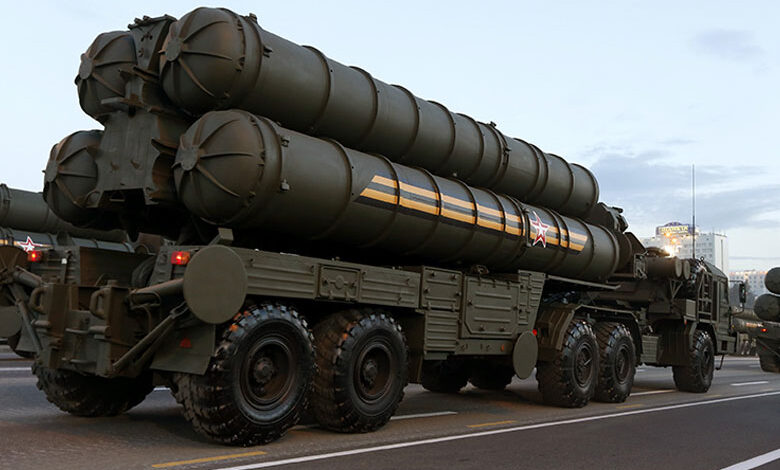
The central question was whether Turkey needed an ADS purchase that would cost billions of dollars or not. The answer to this question is short and clear: Yes! There is a need for the deployment of ADS due to threats Turkey faces because of its geographical location.
“IT IS A DONE DEAL”
Turkey’s decision to purchase S-400 Aviation Defense Systems (ADS) from Russia sparked discussion for many reasons. For the last two years, debate swirled over issues such what kind of contribution a limited number of ADS purchase would make, what problems may occur for NATO member Turkey when it purchased Russian made S-400s, and what kind of risks may arise if Turkey becomes dependent on Russia in the country’s defense even as it already makes the majority of natural gas purchase deals and has established a nuclear power plant with Russia.
There was a serious difference of opinion among experts who made comments during this period. While one group defend the idea that Turkey made a step for its benefits when it decided to purchase S-400s, another group highlighted the problems that may occur in terms of Turkey’s traditional foreign policy and security strategies although they accept the fact that Turkey needs ADS.
All this debate ended on April 3, 2018. President Recep Tayyip Erdoğan announced during a press conference jointly organized with Russian President Vladimir Putin in Ankara that there would be no change in Turkey’s decision to purchase S-400 Aviation Defense System from Russia. “We have signed the agreement. It is a done deal,” he said.
As no U-turn is expected after this point, this situation gives us a golden opportunity to analyze what will be the real outcome of Turkey’s decision to purchase S-400s with a calmer approach after reviewing all negative or positive views.
We will adopt this approach to make predictions about the outcome of this decision in the future and examine four different aspects of the S-400 issue.
As a part of the first aspect, we will examine the contribution of S-400 purchase in terms of its ability to satisfy Turkey’s ADS need. Secondly, we will question how Turkey’s position in the Western Alliance will be affected by the fact that Russia is the supplier country of S-400s. Thirdly, we will evaluate how the S-400 deal will make a contribution to the technology transfer that is needed to produce ADS in Turkey. Fourthly, we will comment on what discussions about S-400s will bring to our defense industry in terms of human resources.
TURKEY’S ADS NEED AND S-400s
The central question was whether Turkey needed an ADS purchase that would cost billions of dollars or not. The answer to this question is short and clear: Yes! There is a need for the deployment of ADS due to threats Turkey faces because of its geographical location.
In addition to air force and ballistic missile capacity of our neighbors in the Middle East region, there is the extensive air force of Greece, with which we came to the brink of war due to the crisis experienced in the Aegean Sea although we are allies in NATO.
How will S-400s serve the defense of the country against threats from its close neighbors? It is possible to answer this question by recalling the extremely strategic role of S-400 ADS during 1970 when it was first developed under the rule of the Soviet Union.
There was a power balance at the end of 1960s in the nuclear armament race between the United States of America (US) and the Soviet Union (USSR) during the Cold War era.
Both superpowers had tens of thousands of nuclear warheads and ballistic missile platforms deployed on land, air and sea that would allow them to lauch these warheads over long distances.
Both sides had the opportunity to maintain second strike capability in protected environments that would allow counterattack in case one of them launched the first attack.
For this reason, it was clearly understood that there would be no winner in such a war that may occur between the two superpowers.
The US and the USSR signed the Anti-Ballistic Missile Treaty in 1972 in response to this situation, known as “nuclear stalemate” in the literature and in order to prevent unwanted nuclear war and to establish mutual trust. One of the most striking elements of this treaty was banning both parties from deploying ADS on their soil.
The exception to this article was the capital cities Washington and Moscow and the regions playing host to Intercontinental Ballistic Missile (ICBM) launching silos that would be determined by the two countries on their own. Deployment of ADS on their soil outside these exceptions was banned by the Anti-Ballistic Missile Treaty. ADS developed for aviation defense of Moscow are known as S-300 today and they were the pioneer system for S-400s. In other words, those who governed the Soviet Union during the Cold War Era when the nuclear threat was bigger than ever had trusted S-300 against any possible aerial attack.
There should not be too many questions in our about how effectively S-400s would defend strategically important locations – these might be the capital city Ankara or big cities such as İstanbul and İzmir or some military strategic zones – from airborne threats, given their advanced specifications compared to earlier models devloped in the 1970s.
Consequently, even though the purchase of S-400 ADS made up of two batteries is discussed and criticized, the mobility of these batteries will make it possible to deploy each battery as a stand-alone to both defend the location playing host to decision maker civilians and military officials and to create a deterrent effect on the attacking party during threats that Turkey may receive in time or during any crisis it might have with its neighbors. Due to S-400 ADS’s defense capacity and deterrent effect, the price paid for the purchase could be seen as reasonable.
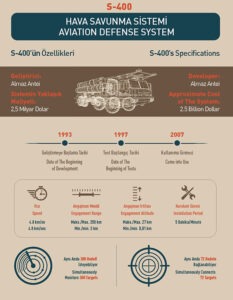
Discussions that took place during the purchase process of Russian-made S-400s emphasized Turkey’s obligations as a part of the NATO alliance were almost the same as the discussion when the country considered purchasing Chinese-made ADS.
The focus of the discussion was the belief that Chinese or Russian ADS that would be deployed in Turkey could not be integrated into the Missile Shield which is planned to be deployed by NATO in order to effectively defend all allied soil against ballistic missile threats.
Although Turkish officials voiced their view that it would be possible to integrate the ADS purchased by Turkey into the Alliance’s Missile Shield, NATO officials stated that although this view was technologically correct, it was not possible to accept Turkey’s solution proposal politically. It would not be wrong to to say that impacts of “East-West” ideological polarization of the Cold War Era are behind the reason why the US and its European Allies opposed the plan and united in harsh criticism of Turkey’s attempts to buy Aviation Defense Systems first from China and then from Russia.
There is an important point to remember for those who say that Turkey is a NATO member that already hosts the most strategic elements of the Missile Shield on its soil at Malatya Kürecik and thus its decision to buy S-400s would be almost a betrayal of the alliance:
Even if all the elements are operational in the Missile Shield which is said to be deployed to effectively defend all soil for allied countries against threats coming from the air, Turkey’s eastern and southeastern regions are not covered by the Alliance’s aviation defense.
In this light, when we consider the fact that Missile Shield covers all European allies, the whole of the US and Canada but excludes Turkey’s wide geography, millions of its people and its strategic facilities, it seems reasonable for Turkish officialsto want to take measures.
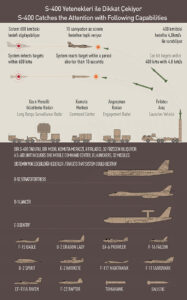
Of course, it would have been more ideal if NATO Member Turkey’s aviation defense system deployed for the defense of areas not covered by the Missile Shield could have been compatible with the system.
However, ally states who turned a deaf ear to Turkey’s insistent demands about this issue should understand Turkish officials’ move to negotiate first with Chinese and then Russian ADS manufacturers as a last resort.
Hence, when Turkey and Russia reached a final agreement on December 27, 2017 as a result of two years of negotiations, the agreement which allows Turkey to purchase ADS manufactured by EUROSAM, a partnership between our NATO allies Italy and France, reached the signing stage in a short period of time and was signed on January 5, 2018 during President Recep Tayyip Erdoğan’s visit to France.
This reveals that Turkey’s move to seek alternative suppliers was a correct strategy when we consider the fact that our NATO allies who responded negatively to Turkey’s joint technology development and cooperation in production demands for years, knocked down Ankara’s door in order to make an agreement in the aftermath of failed negotiations for the purchase of HQ-9 proposed by Chinese company CPMIEC, a deal that allies may have considered as a “bluff”, and closed the deal to purchase S-400s from Russia.
It should not be neglected that Turkey, both due to its geographical location and military, economic and other national power elements, is a medium size power. It is not possible to accept that a country with that capacity will be always dependent on foreign resources for its defense needs. Moreover, in recent history when Turkey carried out the Cyprus Peace Operation in 1972 and when it carried out its most intensive fight against the PKK terror organization in the 1990s, allies imposed an arms embargo. It would be wrong to expect that Turkish officials would forget this bitter experience. For this reason, it is natural for Turkey to want to develop defense technologies with its own resources and capabilities and include this article in international tenders. There are strong signs that Turkish officials will be careful to consider these points during the purchase process of defense systems in the future.
DEFENSE INDUSTRY AND S-400s
The defense industry has extreme strategic importance. Products in this field do not only make contributions to increase the defense capacity of countries but also create serious economic growth when they are used in civilian life.
There are many examples of this situation.
Products and services such as the internet and mobile smart phones that became an inseparable part of our daily lives were developed as a part of high budget secret military projects for years before they were used in civilian life.
It is known that the majority of these products were used by the intelligence and special forces units in particular during operations closely related to national security.
For this reason, many developed countries spend large amounts of money on institutions and offices developing advanced science and technology and offer rewarding conditions to the smartest individuals to work for them.
The US maintains its leading position in defense expenditures.
The defense budget of the US announced at 825 billion dollars for 2018 is equal to the total of the next nine countries’ defense budget.
Having billions of dollars of spending capacity, the US invites the most prominent scientists who are capable of working in the defense industry first to its renowned universities and then makes them become permanent in the sector by employing them in research institutes and defense industry companies right after their graduation.
This is why smart and talented young people who could not find similar opportunities in their homelands, changed their route towards the US and served this county in its goal to becoming more powerful.
Turkey, which is a medium sized power in its region, should immediately establish conditions that will prevent this brain drain to the US and other countries in order to deal with the threats it faces in its region and for its economic development.
Comprehensive investments in the Turkish defense industry might allow the country to make important progress.
For this reason, it is more important to focus on the fact that the purchase of ADS first from China and then from Russia was discussed intensively in public rather than question who defended what view.
The S-400 discussions will lead many Turkish young people – some of them who might be still in high school or some who are studying engineering or basic sciences – to have serious interest in the defense industry and urge them to make moves to work in this sector. This will serve Turkey’s long term interests.

